#tricube
Text
Untitled (“Should I seek,— for both shall we away”)
But didn’t know
of, that hath
been there had
long be-nightmar’d.
Should I
seek,—for both
shall we away?
That convey
its grief.
#poetry#automatically generated text#Patrick Mooney#Markov chains#Markov chain length: 7#154 texts#tricube
2 notes
·
View notes
Text
my whole worth
tied to things
outside me
.
now i think
that im less
cuz of these
.
numbers which
decline down
to zero
.
~~ vilate
#tri-cube#tricube#poetry#poet#original poetry#poets on tumblr#spilled poetry#writers and poets#poetsandwriters#poets corner#poetscommunity#poetscorner#poets
5 notes
·
View notes
Text
apple box (5.19.22, edit 7.26.22)
offensive
address on
apple box
a sense of
a vantage
advantage
defensive!
a fence is
not a fence
2 notes
·
View notes
Text

hanggang saan ba ang iyong paninindigan sa pag-ibig na iyong ipinaglalaban?
(image:
©Serendipity Diamonds)
#filipino#poetry#tagalog#poem#tula#kwaderno on tumblr#maikling tula#love poetry#pangulong tudling#halaga#pagibig#tricube
0 notes
Text
poem- guard dogs not on duty
poem- guard dogs not on duty
Little dogssleeping inthe sunbeam.
Conservingenergyfor defence.
In case ofslamming cardoors or cats.
.
Tricube poem: 3 stanzas of 3 lines of 3 syllables.
View On WordPress
1 note
·
View note
Text
Blue is the
moon rising
above me.
-
Blue is the
sea rushing
towards me.
-
Blue is the
sky, still now,
over me.
#poetry#my poetry#original poetry#writerblrcafe#poetsandwriters#spilled ink#spilled poetry#poems on tumblr#tricube poem#poets on tumblr
24 notes
·
View notes
Text
TRICUBE TALES
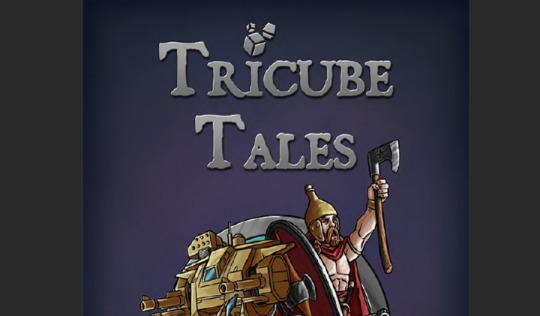
I'm going to start moving (and updating) reviews from my website, and today I wanted to start with a rules-lite system that packs a surprising amount of punch:
Tricube Tales by Richard Woolcock of Zadmar’s Games. There’s a lot I want to say about it, which is crazy because it’s also pretty lite and simple. Also, the damn game is free (full thing in the DTRPG preview) so you can easily check it for yourself.
I’ll keep this brief: Tricube Tales is a minimalist, lite RPG using a mechanic where you roll 1 to 3 six-sided dice, and if any of them hit the target number you succeed. It uses fluctuating difficulty (a base scale of 4, 5, and 6) and Players make all the rolls. This makes it a great system for solo gaming and asynchronous play-by-chat games over Discord.
Character creation is very straight forward, appearing almost too simple but there is weight for it. Here’s what a playable character looks like at a glance:
Sam Strongblade, a Brawny Dwarf Soldier
Perks: Dwarf Stamina
Quirks: Wooden Peg-Leg
Karma: 3 / Resolve: 3
That’s it. You can glance at that, have an idea of what the character does, and maybe dismiss the fact that there’s no stats (Karma and Resolve are point pools, which I’ll explain in a bit.)
That first statement is your archetype, which includes a trait (Agile, Brawny or Crafty) and a concept. Your archetype will help determine if you’re rolling two or three dice (or 1 if it has nothing in common with the action being performed). Your Perks establish special qualities, powers, abilities or unique equipment. Often you can spend a Karma point to use a perk significantly in an action (such as lowering the difficulty). Quirks, likewise, can hinder the character. A player can actively choose to work their Quirk into the narrative, taking a penalty but in doing so restores 1 Karma.
So, if you haven’t guessed yet, Karma is the luck/fortune/power pool that lets the players do cool things. Resolve is the stress/health/endurance pool for every character. When a character hits 0 resolve, they’re taken out of the conflict, and the victor (either PC or GM) gets to narrate what happens. When this happens to player characters, they return next scene, their Resolve restored but now with an Affliction — usually a temporary quirk, but sometimes these can become more serious. Character death isn’t off the table as long as GM and Players agree to the arbitration.
Running things on the GM side is pretty easy-peasy. Most challenges are static pass-or-fail; more elaborate obstacles or tasks are assigned a pool of Effort tokens (where each successful die roll against it removes a token). Combat encounters can track multiple foes separately or you can just say “a horde of goblins” and track a single pool of effort tokens.
There’s a lot more going on — the game covers some quick ground on genre rules, like handling cybernetics, fear, magic & psionics, varying power levels, superheroes and vehicles. For the most part, all of these are just common-sense guides for arbitrating things based on context. This may be the deal breaker for some — this is a game system where players and the GM should be comfortable going back and forth making their own judgment calls on how things go down. It’s pretty much “Roll the dice, and if you succeed — narrate what happens.” It was a system originally designed with kids in mind, but obviously it has appeal to older gamers as well.
I love the damn thing. I’ve played solo games with it, and even made a pocketfold game based on it.
Definitely check it out, and if you dig it — toss the guy a couples bucks. Buying the game gets you a PDF scaled for tablet/PC use as well as a Word doc so you can hack it and make your own stuff with it.
2 notes
·
View notes
Text
Oct. 8: In the Familiar Dirt I Pushed Toward a Joke
In the Familiar Dirt I Pushed Toward a Joke
Facedown now
the moon was
satisfied
with my heart,
quickly true
to the next
silence that
swept over
in morning.
This is an erasure poem. Source Text: Stine, R. L. The Thrill Club. New York: Pocket, 1994. 29-32. Print.
2 notes
·
View notes
Text
Academy of Monstrous Secrets (Tricube Tales One-Page RPG) - Zadmar Games | Tricube Tales | DriveThruRPG
0 notes
Text
National Poetry Month: Explore Tricubes
Tricube poems are a form of poetry that consist of three stanzas, each containing three lines. The name “tricube” comes from the fact that each line of the poem has exactly three syllables.
The first stanza sets the tone or theme of the poem, the second develops it further, and the third brings the poem to a conclusion. Each stanza should be a complete thought or idea, and the poem should flow…

View On WordPress
0 notes
Note
Hiya! Do you know of any good rpgs for fiction in the Sword and Sandal genre, or really anything that would fit a largely-historical game set in the ancient to late antique Middle East?
Thanks for everything you do!
THEME: Sword and Sandal
Hello Friend, I don’t think I found anything here that meets what you’re looking for exactly, but I think there are a few things here that are in the same neighbourhood of what you’re looking for. I’ve found a few Bronze-Age and Mesopotamian games that might interest you, as well as a setting in Ancient Egypt!
I know that there’s not a lot here that is likely to hit the mark that you were looking for, so I’m also hoping that folks who see this will add their own suggestions in the comments and reblogs!

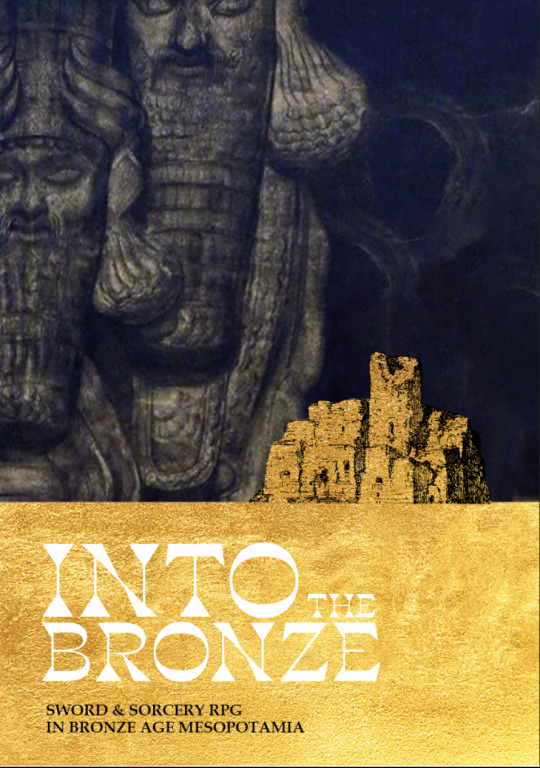
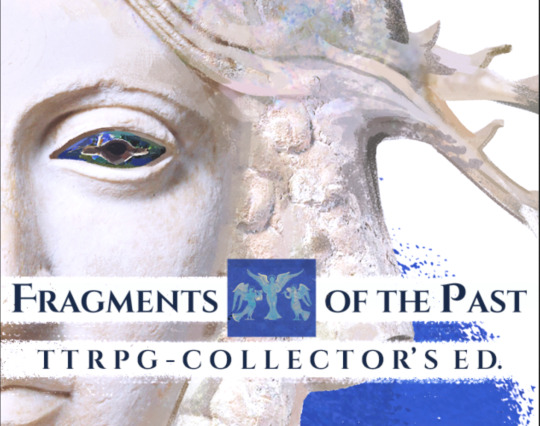
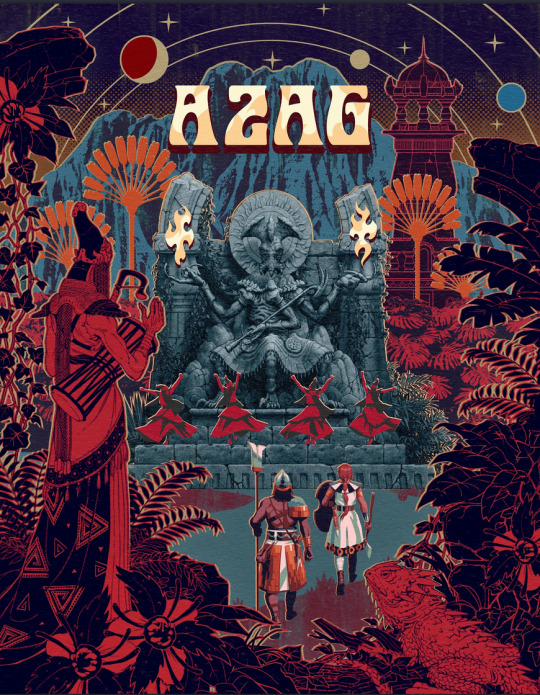
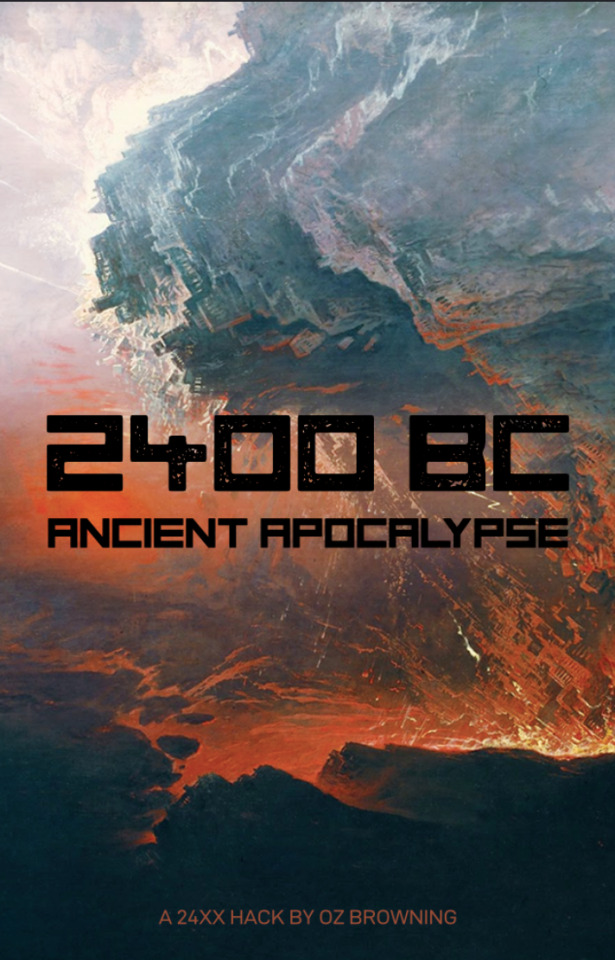
Champions of Osiris, by Zadmar Games.
“King Osiris and Queen Isis once ruled ancient Egypt—until Set murdered his brother and usurped the throne. Isis was a powerful sorceress who used her powers to escape, but Set chopped his rival into dozens of pieces and scattered them across the land, preventing his resurrection.
With the aid of her sister Nephthys, Isis recovered the remains of her husband’s loyal bodyguards and retainers, imbuing their spirits with potent sorcery and granting them immortality. These fierce heroes began the formidable task of seeking out and gathering the lost pieces of their king’s corpse.
You are the “immortal champions.” You once swore to guard your king’s life with your own—and you did! Now you’ve sworn another oath: to destroy Set’s legacy and restore Osiris to the throne.”
The Tricube Tales System is a genre-neutral rules set that is meant to be easy to learn and great for short games. The designer has created countless scenarios for this system, with Champions of Osiris being one of them. Players receive karma tokens, which they can use to increase their chances of success, and gain by increasing their chances of failure. They also have a resolve track, which erodes with each failure, potentially removing a player from the scene if they aren’t careful.
This is definitely not a historical game, but it’s probably the closest to the “Middle East” inspiration that I was able to find during my search.
Into the Bronze, by Lantern’s Faun.
Into the Bronze is a RPG of sword, sorcery and sandals in Mesopotamia from the Bronze era.
The plains between the Tigris and Ephrates rivers hide silent, gloomy valleys where demons and lesser gods devise their evil plans. Defy the gods of Sumeria, behold the beginning of civilization.
This is a rule-set, but it doesn’t have much in terms of lore, which may be good if you have the kind of world you want to play in already in your head, but just need a framework in terms of player skills and dice resolution. Into the Bronze is inspired by Into the Odd, by Chris McDowell, renowned for its flexibility and simplicity. I think it would be very easy to take characters built in this world and then put them into a world like that of Undying Sands, which isn’t a game in itself but provides you with plenty of locations, encounters, and characters to fight, barter, and conspire with.
Fragments of the Past, by Dev9k.
Fragments of the Past is a rules-light roleplaying game set in a Bronze-Age world evoking the atmosphere of ancient tales and poems of the archaic Mediterranean, where conflicts are resolved on a roll of a d10 or a d100.
Experience the great tragedies, deeds, and ambitions of larger-than-life characters, dwelling in a world of sacred places and untamed wilderness. Pray and live according to the ancient customs of long-forgotten civilizations, if you dare.
Fragments of the Past is meant to emulate mythic and tragic stories from a world that could have been, a world with references to ancient mediterranean cultures, but its locations and peoples are uniquely named. This is a world where the Gods’ wills have visible effects on the world around them: this is most visible in Talismans - relics that became powerful because of their place in great stories and actions of heroes.
This is a game designed for long-form play. Your characters are built from a mix of quantifiable stats and descriptive abilities that point to the personality and narrative arc desired by the player. As the characters grow, they will primarily manifest new Epithets, which are specific areas of knowledge born from the characters’ experiences. When rolling to actively do something using an attribute, players pick up a d100. When doing something that involves luck, hubris or willpower, the player will instead pick up a d10.
If you want to check out this game before buying it, you can check out the free Quickstart, which has over 100 pages of lore and guidance to introduce you to the basics of this game.
AZAG, by Dank Dungeons.
"You must travel far, beyond the spider-haunted towers of Byzaron and the red mists of The Yielding Plain. The Sleeping Augur awaits, through azure pylons inscribed with sigils both beneficent and doomed.”
AZAG is a combination tabletop role playing game and five track instrumental album. Featuring a rule system inspired by the likes of Fighting Fantasy and Troika! in a setting inspired by Lovecraft's Dream Cycle, Howard's Conan, and Smith's Hyperborea.
Treat with strange entities, battle against weird magics, and explore a world of mystery and wonder!
Looking at the inspiration and references for this game, as well as the rule system it draws from (Troika), I have a feeling AZAG is going to be extremely un-serious. This is not a game of historical realism, but of sorcery, action, and storage gods. Based on its source material, I”m also guessing that character creation is going to be rather simple, and survival is going to depend on your creativity more-so than the luck of your rolls. If you like your games dangerous and a little over-the-top, you might want to try AZAG.
2400 BC, by ozmodeuz.
"…at dawn a black cloud came from the horizon; thunderous with wrath. The seven judges of hell raised their torches, lighting the land with their livid flame. The earth cried despair to the heavens as daylight turned to darkness and the land was shattered like glass. For six days and six nights the tempest raged and gathered fury, and poured over the people like the tides of war. All sense and hope was lost, and the gods cowered in heaven…"
2400 BC is a hack of Jason Tocci's 24XX about rebuilding community in the aftermath of an environmental catastrophe, thousands of years in the past. It was inspired by Mesopotamian myth, particularly the Epic of Gilgamesh.
2400 BC explores a recent tragedy, devastating your homeland and driving you to fight for survival. It’s a small game that makes extensive use of roll tables to help generate characters quickly as well as provide a GM with quick ideas as to what kinds of opportunities and problems your characters will face. The character generation tables have plenty of options for making characters that aren’t necessarily good people, so I have a feeling survivability is a bit low.
All in all, if you want a quick to pick up game about catastrophe hitting the ancient world, this might be the game for you.
47 notes
·
View notes
Text
“Enough they last such love it well night, alone”
For yet beauteous,
as if
I’ve do? Enough
they last
such love it
well night, alone.
Mirror
now far as
a gifts that?
#poetry#automatically generated text#Patrick Mooney#Markov chains#Markov chain length: 5#157 texts#tricube
2 notes
·
View notes
Text
Poetic Reveries Saturday Specials: Tricube
Trilling birds
At dawn's rise
Wake me from
Tranquil sleep
Witnessing
The first light
Here is our
Tomorrow
Watch night fade
#theblazingpoetess#poetry#poet#poets#poem#poemas#poetic#poesia#poems#tumblr#write#writeblr#writer#writing#poetblr#poets on tumblr#writers and poets#original poem#poems on tumblr#stanza#writers#writers on tumblr#writerscommunity#women writers#women poets#dead poets society#poets corner#poets and writers#poets community#my poem
4 notes
·
View notes
Text
Tricube Poems
The Present
Time passes
It drips down
Endlessly
I can’t change
What’s in the
Past, it’s gone
But I can
Control the
Here and now
Who am I
I used to
Be someone
I didn’t know
Until I
Learned to
Love myself
And now I
Think I know
Who I am
5 notes
·
View notes
Text

(image:
©FinWise)
0 notes
Text
Poem- summer day
Seagulls cryscreaching calls,skydiving.
Spirallingthrough blue skieswatching us.
Picnic lunchtemptationFrench fry thieves.
.
Tricube poem: 3 stanzas of 3 lines each with 3 syllables.
View On WordPress
1 note
·
View note